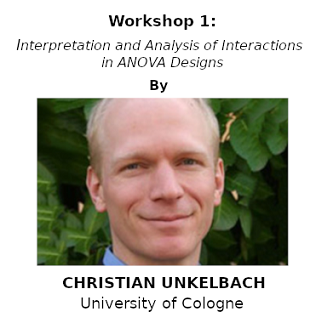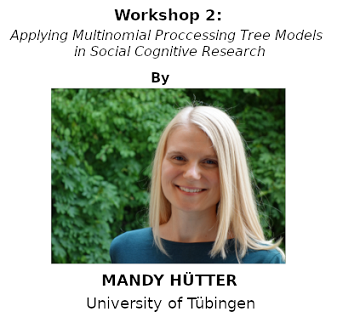
|
|
|
WorkshopsTwo different workshops will be organized on Tuesday the 3rd at 15:50
Many thanks to Christian and Mandy !
CHRISTIAN UNKELBACH - University of Cologne Interpretation and Analysis of Interactions in ANOVA Designs - Deniges Auditorium The 2 x 2 design is still the “Arche Noah” design of social psychological research. It is highly popular due to its simplicity: all relevant comparisons are “wired-in”; that is, two main effects and one interaction. However, the interpretation of the interaction effect is often less clear than what one might hope for.I will present and discuss some of the most common misconceptions, in particular testing single cell mean differences in the absence of a significant interaction, the problem of power in testing interactions, and alternatives in terms of contrast analyses.When one aims for contrast analyses, the necessity for a priori specification (i.e., pre-registration) becomes evident, as contrasts provide researchers with more freedom to test specific hypotheses.The workshop will include some exercises, although most of the time I will present information distilled from the cited research papers in a lecture format.
MANDY HÜTTER - University of Tübingen Applying Multinomial Proccessing Tree Models in Social Cognitive Research - Durkheim Auditorium In social cognition, it is often of paramount importance to separate the contributions of multiple psychological processes to observed effects. This can be challenging as oftentimes different processes can lead to the same outcomes. For example, both explicit and implicit memory can contribute to recognition performance and attitude acquisition. How can we separate what is explicit from implicit, automatic from non-automatic, conscious from unconscious, controllable from uncontrollable? Multinomial Processing Tree (MPT) models constitute one of the most powerful research frameworks towards this goal. The present workshop reaches out to social cognitive researchers who would like to use MPT models in their own research. The goal of the workshop is to make MPT modeling more accessible, explaining their usefulness as well as some of the preconditions and assumptions involved in implementing MPT models.
|



